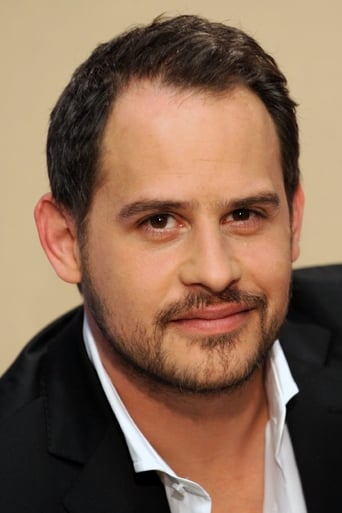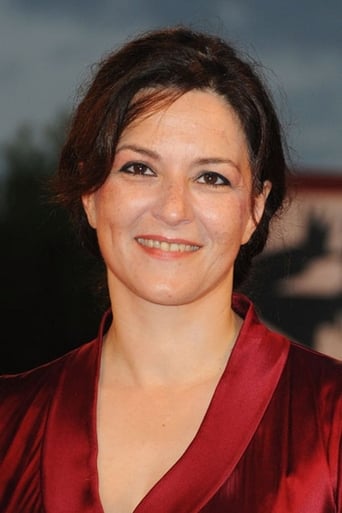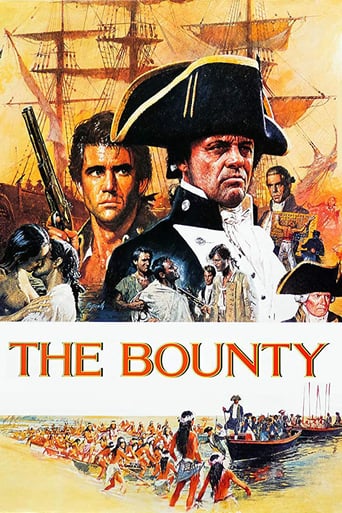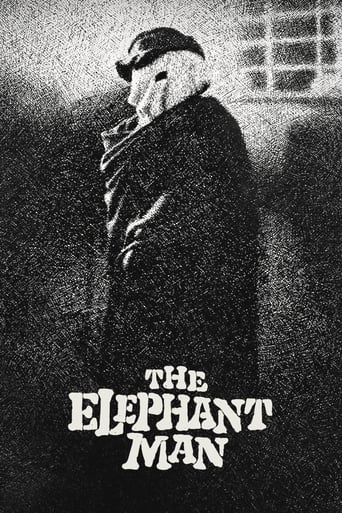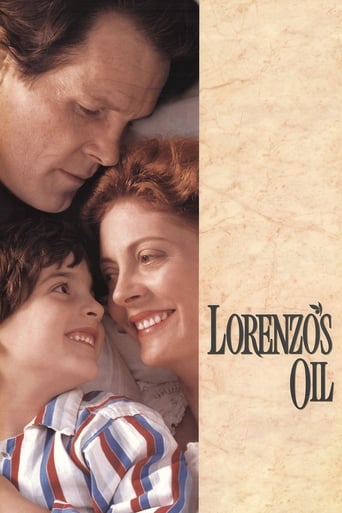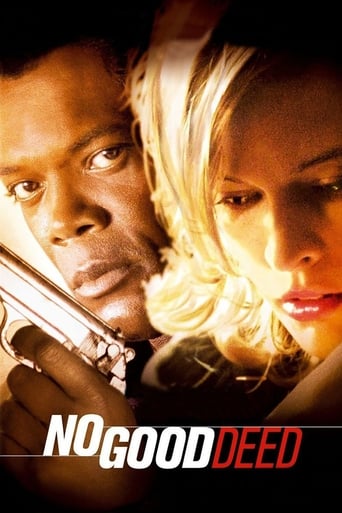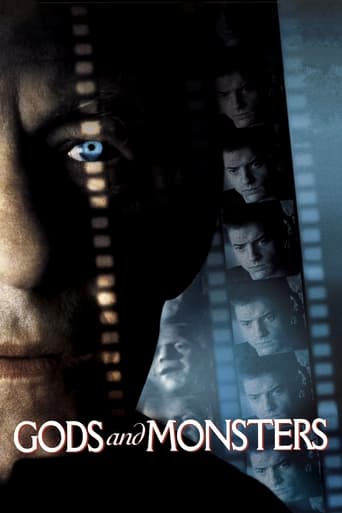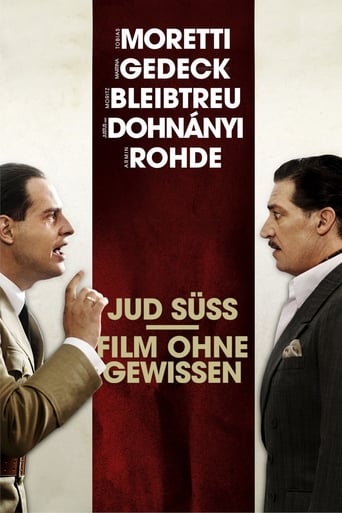
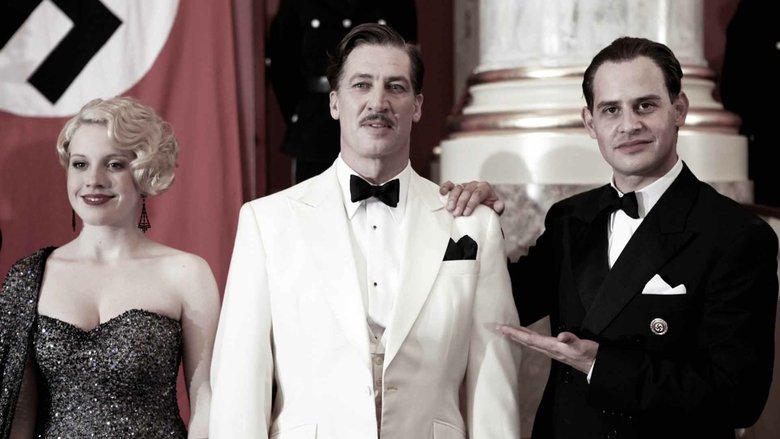
Jew Suss: Rise and Fall (2010)
This intricate historical drama tells the story of actor Ferdinand Marian (Tobias Moretti), who is ordered by Nazi propagandist Joseph Goebbels to star in the 1940 anti-Semitic film Jew Suss. Despite his cooperation, Ferdinand's actions have unexpected costs. Ferdinand's Jewish wife, Anna (Martina Gedeck), is sent to a concentration camp, and as World War II intensifies, he rebels against the Nazis, leading to the destruction of his career.
Watch Trailer
Cast


Similar titles
Reviews
"Jud Süss - Film ohne Gewissen" is a German movie from 5 years ago written and directed by Oskar Roehler. Roehler is one of the most successful German filmmakers right now and here he adapted Friedrich Knilli's book for this controversial movie. It runs for almost 2 hours and features Tobias Moretti (Kommissar Rex) as the title character. This film will do absolutely nothing for you if you do not know already about the events that are depicted in there. You so not necessarily have to have seen the original "Jud Süß", but it helps. However, you really need to know about the film's contents and also a bit about Marian, Harlan, Goebbels... And even if this applies to me that I do know about all of this as I am particularly interested in the Nazi years and World War II, I was still disappointed by the movie. It is tough to point a finger on what exactly went wrong. It may be the script. The actors exclude many big names, at least here in Germany. I will not list the names, but you can check the cast to see them. Roehler, once again, works with 2 actors who I am a bit surprised to see in here (Bauer, Stadlober). He has a tendency of casting popular actors that do not have that much talent really. But as long as they are just in smaller roles, it's fine for me.Anyway, the premise here is excellent. It was a really interesting time for movies in Germany and, as despicable as propaganda films may be, it's still interesting to watch them and figure out how they could alter people's minds back then. It's a film about a film. But it's also a film about Ferdinand Marian's life around that time. We find out about his wife and how that relationship made things really complicated in every regard. But we also find out about his thought process and how Goebbels basically forced him to accept the role. Still, his doubts were mostly not because he despised the propaganda, but because people would see him as a Jew. Back then films were something entirely different. Audiences thought frequently actors would also personify with their characters in real life, even if that may sound absurd by today's standards. Anyway, all in all, I was pretty disappointed here. This film has not many interesting scenes really and it also drags and should have been kept a lot shorter. They certainly missed a chance here of turning a truly interesting story into an interesting film. I was particularly disappointed by Bleibtreu who offered absolutely nothing as Goebbels here apart from over-the-top face expressions and screaming. This was a disappointing work. Not recommended.
"Jud Suss, film without conscience", original title, year 2010, German director Oskar Roehler puts us basically to the question of the role of art and the artist, in a crucial historical juncture social, political and time. Is it possible that art is dissociated from the ideological and achieve the premise of "art for art"? I think not and this clearly happens here in this recreation of the circumstances, the process of making and receiving the original film of 1940. The Original Jud Suss, of Veit Harlan, within the framework of the 2nd World War, was fervently praised and applauded by critics and public.Implementada as anti-Semitic Nazi propaganda, in an aesthetic, beautiful and seductive form, such as the film forming thought and values.La film Roehler (2010) also shows the human drama, personal drama, the actor who must embody the role of opportunistic lapidary and climbing Jew, lacking any ethical or moral.Ese actor in the historical reality was Ferdinand Marian (1902-1946) .It leads to the inner conflict of the character, which it becomes a kind of Faust to a Mephistopheles (Goebbels, Nazi minister of propaganda), which has to offer the role of her life, catapulting him to success and fame. The character is not a hero, is an anti-hero and so the film leads us through the process of doubts, questions and misery to fall in most despicable.Film-player turn out to be mirror projection each other: film and its consequences on a massive scale, man / actor before himself, his ethics and family. The performance of the entire cast is very good, to highlight its protagonists: Tobias Moretti as Marian F., Martina Gedeck as Anna, his wife and Moritz Bleibtreu as Goebbels. Identification by spectators and empathy between central character does not occur, it is not intended to be so. Tobias Moretti ("Inspector Rex", "Speer and Er", "Io, Don Giovanni," "The Dark Valley", etc.) Gives an interpretation of many quality.Trained in the theater, seems here to be in it and it does not dislikes. Oskar Roehler with a very good accomplishment and bold poses the rise and fall of a film, which in turn represents the rise and fall of a political regime and in that context, the fullness and sinking of a subject who is also an artist. The originator scene of controversy, achieved its provocative role, shock (though erroneously interpreted by some critics of the Berlinale), then left exposed in all its dimensions, as an allegory, all this decay and human misery of the elite in the middle a world devastated by war.Y finally makes us reflect and gives us a movie with a lot of awareness.
Why was this film talked against at Berlinale? I find it excellent. It is very interesting story about what happened to actor Marian who acted in Jew Suss. We are still not sure, but I heard that some soldiers of some country who occupied Germany at that time killed him. Nobody is sure.It is very important to explore Nazi propaganda films, it was an interesting time in the history of film making in Germany at that time. I wished Nazi period never happened, but it did and left a legacy in film making that Germany and UFA should not be proud of.I would definitely recommend this film for all people who want to know about what happened to film making during Nazi period. We should explore further what happened to the actor Ferdinand Marian.
This is a fascinating and gripping film. I heard it was discredited at the Berlin Film Festival, but I cannot understand why. Whoever says it's a bad movie, is some sour critic with a bad taste, and when these are together, they infect one another mutually with their moods (or they think it chic to have this view). Nobody should avoid this film only because of their view of it. Nobody but you yourself knows your taste, and the way in which something enters your mind in the strongest way.And nobody really knows the details that happened to Ferdinand Marian, the exact words that were said, the exact situations. A historical piece like this is never absolutely correct,the real proceedings are lost to us, and therefore different angles of view are allowed, and should be seen as such. And this one was a very fascinating interpretation, that held me captive until the end. This means especially the view on Goebbels, and I'll never forget the color that Moritz Bleibtreu gave him.



